COVID-19 CASES SURGE
입력 2022.01.24 (15:24)
수정 2022.01.24 (16:47)
읽어주기 기능은 크롬기반의
브라우저에서만 사용하실 수 있습니다.
[Anchor Lead]
S. Korea hit the second highest number of covid 19 cases last Saturday with roughly 7,600. Some 7,500 new cases were reported as of midnight of oday even though it was Sunday, surpassing the 7,000-mark for the third straight day. The rapid spread of the highly contagious omicron variant is causing cluster infections across the country. As a result, the number of cases spiked even during the weekend when the number of cases usually fall.
[Pkg]
This restaurant in Seoul's Gwanak-gu District reported cluster infections. It has been linked to 58 cases since the first case was reported on January 17th.
[Soundbite] (Neighboring Merchant(VOICE MODIFIED)): "I heard it from an employee after a customer tested positive."
Cluster infections are occurring across the country regardless of region or facility type. They have occurred at a police station in Siheung, Gyeonggi-do Province, a church in Gimpo, a nursing hospital in Gwangju, an elementary school in Daejeon, a childcare center in Busan and a sports facility in Daegu. As recent as last month, four out of five new cases occurred in the capital region, but now one out of three cases come from areas outside of the Greater Seoul area. 7,513 new COVID-19 cases were reported today, surpassing the 7,000-mark for three straight days. This is the third highest number of cases reported in Korea, approaching roughly 7,800 cases recorded in December 15th of last year. The number of people getting tested tends to fall during holidays or weekends, leading to fewer cases than on weekdays. But the spread of the omicron variant has caused cases to rise regardless of the day of the week.
[Soundbite] Prof. Kim Woo-joo(Korea University Guro Hospital) : "The number of new cases rose since omicron became the dominant variant. Even in the U.S. or Europe, cases surged rapidly because omicron spread faster than delta."
Cities including Gwangju and Pyeongtaek are to start implementing measures against the omicron variant from Wednesday. As the variant spreads rapidly across the country, the government is under pressure to decide whether to expand disease control measures nationwide.
S. Korea hit the second highest number of covid 19 cases last Saturday with roughly 7,600. Some 7,500 new cases were reported as of midnight of oday even though it was Sunday, surpassing the 7,000-mark for the third straight day. The rapid spread of the highly contagious omicron variant is causing cluster infections across the country. As a result, the number of cases spiked even during the weekend when the number of cases usually fall.
[Pkg]
This restaurant in Seoul's Gwanak-gu District reported cluster infections. It has been linked to 58 cases since the first case was reported on January 17th.
[Soundbite] (Neighboring Merchant(VOICE MODIFIED)): "I heard it from an employee after a customer tested positive."
Cluster infections are occurring across the country regardless of region or facility type. They have occurred at a police station in Siheung, Gyeonggi-do Province, a church in Gimpo, a nursing hospital in Gwangju, an elementary school in Daejeon, a childcare center in Busan and a sports facility in Daegu. As recent as last month, four out of five new cases occurred in the capital region, but now one out of three cases come from areas outside of the Greater Seoul area. 7,513 new COVID-19 cases were reported today, surpassing the 7,000-mark for three straight days. This is the third highest number of cases reported in Korea, approaching roughly 7,800 cases recorded in December 15th of last year. The number of people getting tested tends to fall during holidays or weekends, leading to fewer cases than on weekdays. But the spread of the omicron variant has caused cases to rise regardless of the day of the week.
[Soundbite] Prof. Kim Woo-joo(Korea University Guro Hospital) : "The number of new cases rose since omicron became the dominant variant. Even in the U.S. or Europe, cases surged rapidly because omicron spread faster than delta."
Cities including Gwangju and Pyeongtaek are to start implementing measures against the omicron variant from Wednesday. As the variant spreads rapidly across the country, the government is under pressure to decide whether to expand disease control measures nationwide.
■ 제보하기
▷ 카카오톡 : 'KBS제보' 검색, 채널 추가
▷ 전화 : 02-781-1234, 4444
▷ 이메일 : kbs1234@kbs.co.kr
▷ 유튜브, 네이버, 카카오에서도 KBS뉴스를 구독해주세요!
- COVID-19 CASES SURGE
-
- 입력 2022-01-24 15:24:28
- 수정2022-01-24 16:47:31
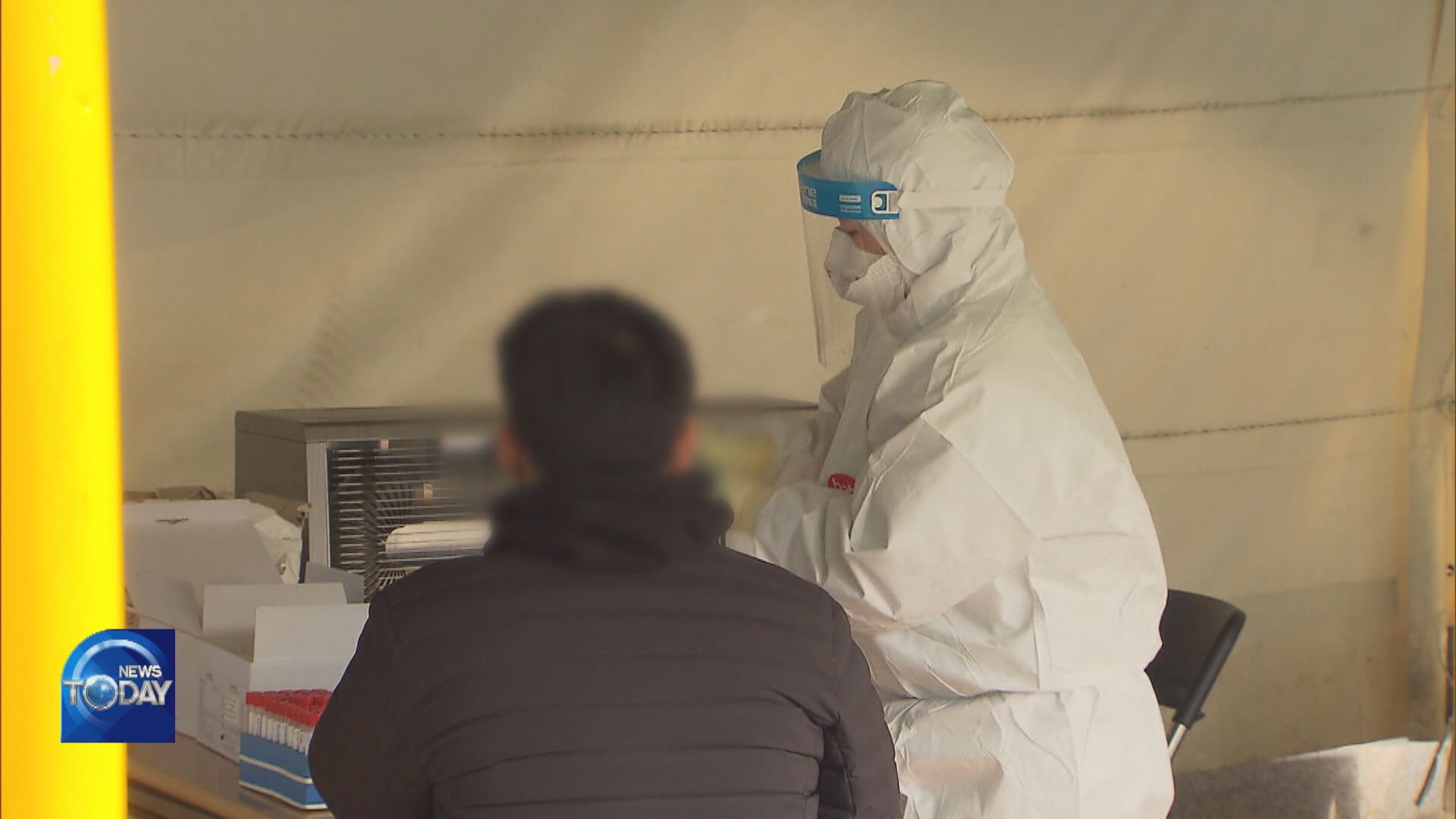
[Anchor Lead]
S. Korea hit the second highest number of covid 19 cases last Saturday with roughly 7,600. Some 7,500 new cases were reported as of midnight of oday even though it was Sunday, surpassing the 7,000-mark for the third straight day. The rapid spread of the highly contagious omicron variant is causing cluster infections across the country. As a result, the number of cases spiked even during the weekend when the number of cases usually fall.
[Pkg]
This restaurant in Seoul's Gwanak-gu District reported cluster infections. It has been linked to 58 cases since the first case was reported on January 17th.
[Soundbite] (Neighboring Merchant(VOICE MODIFIED)): "I heard it from an employee after a customer tested positive."
Cluster infections are occurring across the country regardless of region or facility type. They have occurred at a police station in Siheung, Gyeonggi-do Province, a church in Gimpo, a nursing hospital in Gwangju, an elementary school in Daejeon, a childcare center in Busan and a sports facility in Daegu. As recent as last month, four out of five new cases occurred in the capital region, but now one out of three cases come from areas outside of the Greater Seoul area. 7,513 new COVID-19 cases were reported today, surpassing the 7,000-mark for three straight days. This is the third highest number of cases reported in Korea, approaching roughly 7,800 cases recorded in December 15th of last year. The number of people getting tested tends to fall during holidays or weekends, leading to fewer cases than on weekdays. But the spread of the omicron variant has caused cases to rise regardless of the day of the week.
[Soundbite] Prof. Kim Woo-joo(Korea University Guro Hospital) : "The number of new cases rose since omicron became the dominant variant. Even in the U.S. or Europe, cases surged rapidly because omicron spread faster than delta."
Cities including Gwangju and Pyeongtaek are to start implementing measures against the omicron variant from Wednesday. As the variant spreads rapidly across the country, the government is under pressure to decide whether to expand disease control measures nationwide.
S. Korea hit the second highest number of covid 19 cases last Saturday with roughly 7,600. Some 7,500 new cases were reported as of midnight of oday even though it was Sunday, surpassing the 7,000-mark for the third straight day. The rapid spread of the highly contagious omicron variant is causing cluster infections across the country. As a result, the number of cases spiked even during the weekend when the number of cases usually fall.
[Pkg]
This restaurant in Seoul's Gwanak-gu District reported cluster infections. It has been linked to 58 cases since the first case was reported on January 17th.
[Soundbite] (Neighboring Merchant(VOICE MODIFIED)): "I heard it from an employee after a customer tested positive."
Cluster infections are occurring across the country regardless of region or facility type. They have occurred at a police station in Siheung, Gyeonggi-do Province, a church in Gimpo, a nursing hospital in Gwangju, an elementary school in Daejeon, a childcare center in Busan and a sports facility in Daegu. As recent as last month, four out of five new cases occurred in the capital region, but now one out of three cases come from areas outside of the Greater Seoul area. 7,513 new COVID-19 cases were reported today, surpassing the 7,000-mark for three straight days. This is the third highest number of cases reported in Korea, approaching roughly 7,800 cases recorded in December 15th of last year. The number of people getting tested tends to fall during holidays or weekends, leading to fewer cases than on weekdays. But the spread of the omicron variant has caused cases to rise regardless of the day of the week.
[Soundbite] Prof. Kim Woo-joo(Korea University Guro Hospital) : "The number of new cases rose since omicron became the dominant variant. Even in the U.S. or Europe, cases surged rapidly because omicron spread faster than delta."
Cities including Gwangju and Pyeongtaek are to start implementing measures against the omicron variant from Wednesday. As the variant spreads rapidly across the country, the government is under pressure to decide whether to expand disease control measures nationwide.
이 기사가 좋으셨다면
-
좋아요
0
-
응원해요
0
-
후속 원해요
0










![[HEADLINE]](https://news.kbs.co.kr/data/news/title_image/newsmp4/news_today/2022/01/24/10_5379839.jpeg)
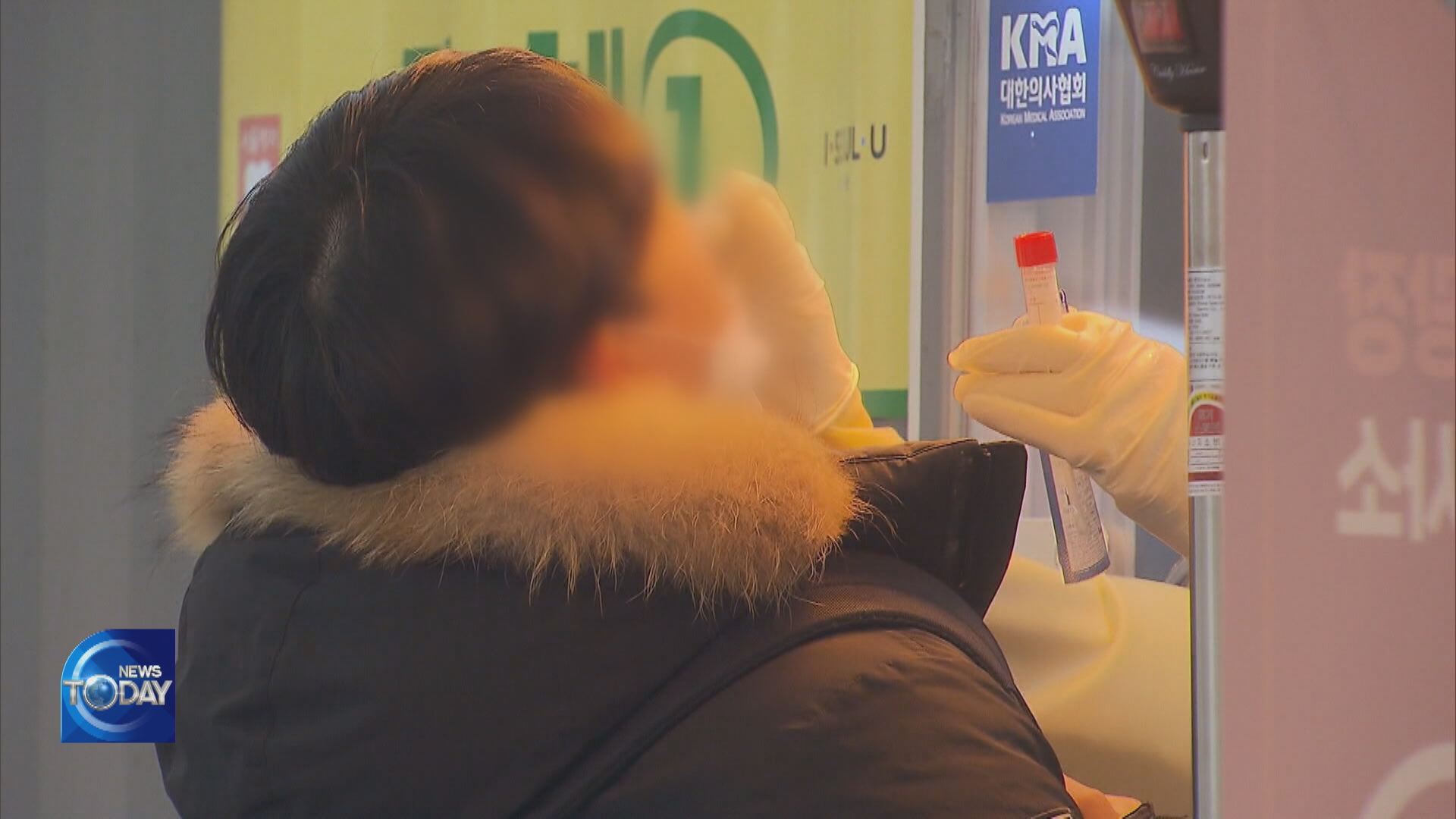
![[영상] 정진우 서울중앙지검장 첫 출근…<br>“신뢰받는 검찰 되도록 노력”](/data/fckeditor/vod/2025/07/04/305901751621912095.png)
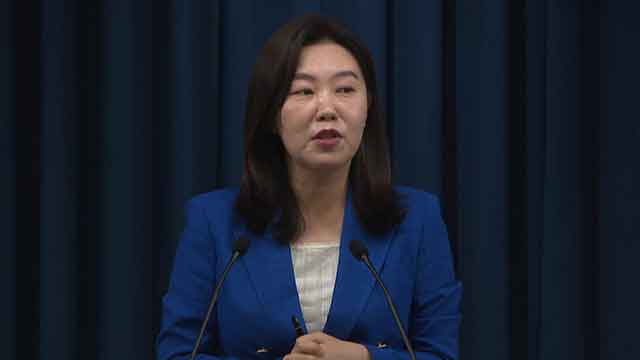
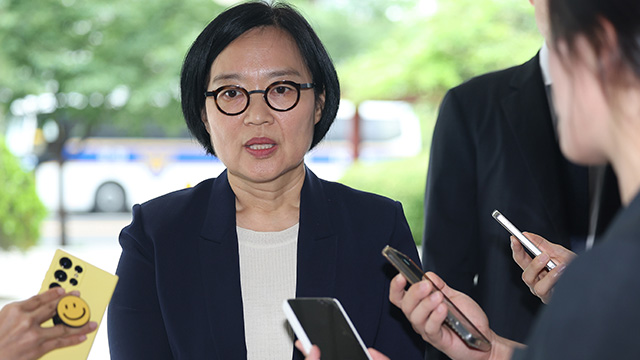
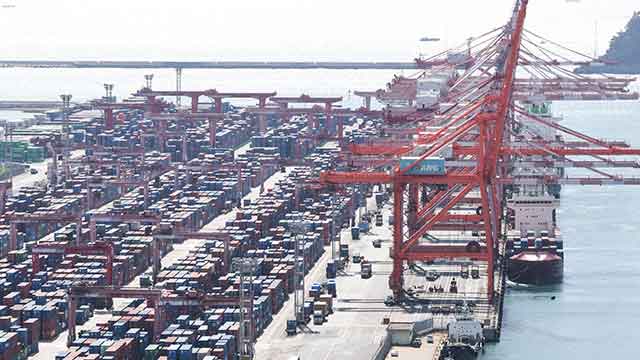

이 기사에 대한 의견을 남겨주세요.